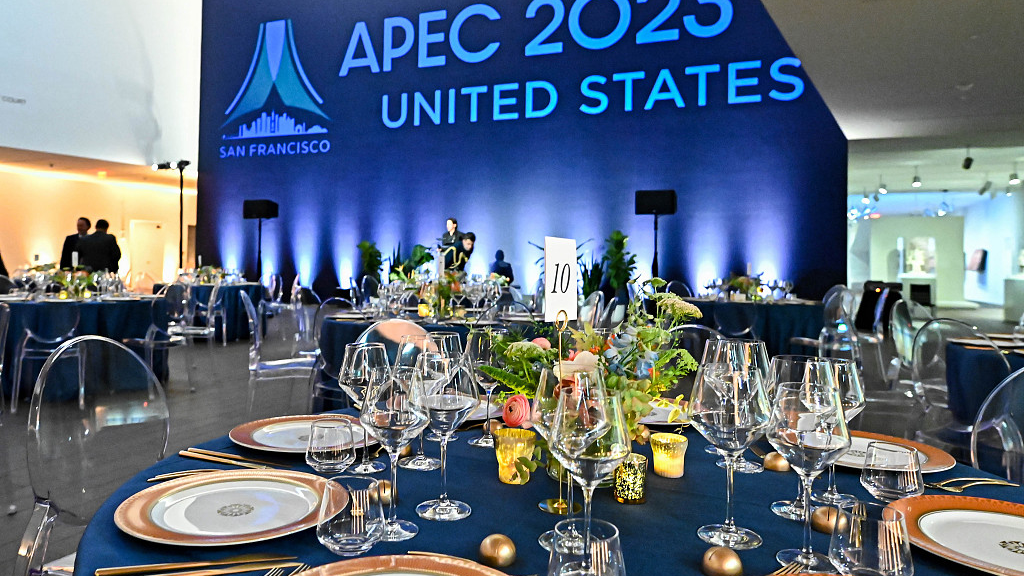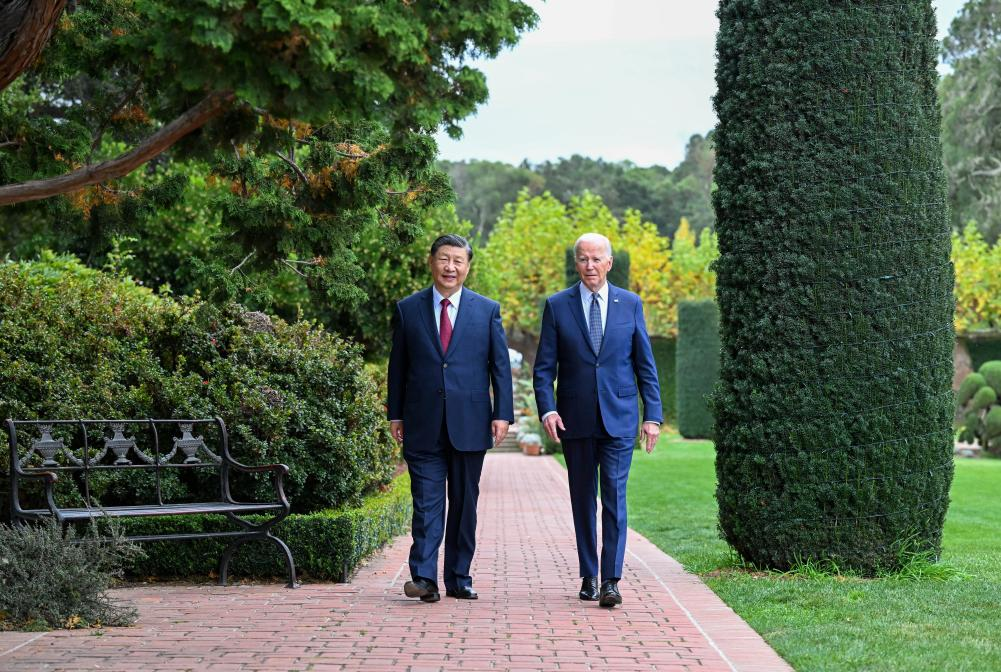Editor's note: Masud Rana, a special commentator on current affairs for CGTN, is an independent researcher and freelance columnist. The article reflects the author's opinions and not necessarily the views of CGTN.
With no treaty responsibilities, the Asia-Pacific Economic Cooperation (APEC) is an open conversation platform that is non-binding and aimed at promoting economic development, collaboration, trade, and investment in the Asia-Pacific region.
The 30th APEC Economic Leaders' Meeting was held in San Francisco last week. Supply chain resilience, science, technology, sustainable energy, infrastructure, women's economic empowerment, and diversity are just a few of the subjects covered during the meeting.
With half of the world's GDP and about 40 percent of the world's population, Asia-Pacific is the most active and vibrant region in the world. The International Monetary Fund projected that APEC will account for two-thirds of world growth this year. In order to advance free trade and solidify the gains of globalization, multilateral organizations for economic cooperation such as APEC and free trade agreements are useful. This is particularly true in light of the slowdown in global economic growth.
The Asia-Pacific region is dealing with challenging geopolitical conditions. Some member countries need to alter their policies in order to get rid of needless protectionist actions, limited geopolitical rivalry, and a better collaboration attitude. For instance, the Asia-Pacific region as a whole would consistently experience positive development momentum if the U.S., South Korea, Japan, Australia, and the Philippines alter the direction of a zero-sum competition with China.
As a major proponent of economic cooperation, China always resists protectionism and advances an open, free and nondiscriminatory international trade system. In his speech at the meeting, Chinese President Xi Jinping urged all stakeholders to work together to advance prosperity and regional development.
Members of APEC have an opportunity to restore the integrity and prosperity of the region thanks to China's dedication to promoting innovation and its open approach towards everyone. Many beneficial lessons may be imparted to other regional nations, including China's encouragement of technical innovation, its creation of environmentally friendly goods, and its supply of human resource training to both the public and commercial sectors in the area.
China's strategic partnership will also benefit the area as its Belt and Road Initiative seeks to advance global economic inclusivity via investments in digital innovation, workforce development, infrastructure, and assistance for small and medium-sized enterprises.
There is no danger from China to any of the APEC economies. The rest of the world faces opportunities rather than dangers as a result of China's rise. The economies that make up the Asia-Pacific region must learn more about China and be more understanding of the country's progress. Chinese modernization is a means of achieving wealth for everybody.
While collaboration assures peaceful cooperation and a shared future for sustainable progress, geopolitical rivalry only serves to impede growth and undermine peace and stability. As it looks for new growth prospects, the collaboration and development of Asia-Pacific have a considerable effect on the future and destiny of the global economy.
Chinese President Xi Jinping and U.S. President Joe Biden met in San Francisco, on November 15, to talk about the global economy and other issues of great importance. For their first face-to-face encounter in a year, the two heads of state engaged in an open and thorough discussion. In light of the ongoing global changes, Xi underlined the need for respect and collaboration between the two countries. He emphasized that China and the United States share responsibility for the world and history, and that major-country rivalry cannot address the issues confronting them.
In terms of trade, last year, China-U.S. trade volumes hit a record high, and the U.S. government officials' attendance at the China International Import Expo earlier this month suggests that ties are improving. While Washington has emphasized the value of win-win collaboration, peaceful coexistence, and mutual respect, Beijing has also voiced optimism for strong bilateral relations. The leaders' perspectives on the relationship will influence how they behave going forward.
As the two biggest economies in the world, China and the U.S. have an important trade and economic connection that is essential to the success of APEC and global growth. Their partnership is suffering countercurrent disturbances despite their complementary economic structures, which is regrettable for both China and the U.S., preventing it from reaching its full potential.
Multilateral collaboration in the region has the potential to significantly improve positive and cooperative relationships between all parties involved, especially in areas such as artificial intelligence, science and technology, and climate change. Given their dominant economies in the Asia-Pacific region, China and the U.S. need to strengthen their trade and economic cooperation with other APEC members. Greater economic potential for all the nations in the area might result from improved collaboration and friendly relations.
(If you want to contribute and have specific expertise, please contact us at opinions@cgtn.com. Follow @thouse_opinions on Twitter to discover the latest commentaries in the CGTN Opinion Section.)



